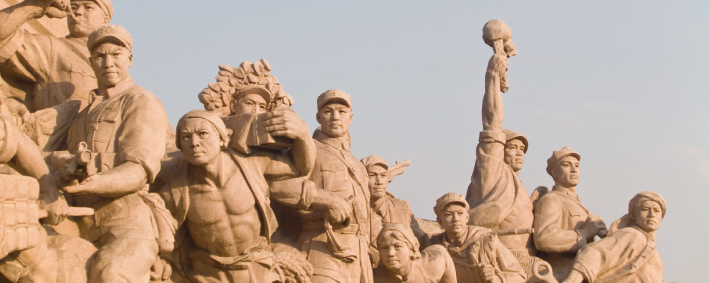 |
CCCH9005 China: Culture, State and SocietyThe Chinese Cultural RevolutionThis course is under the thematic cluster(s) of:
|
Course Description
[This is a certified Communication-intensive (CI) Course which meets all of the requirements endorsed by HKU’s Senate, including (i) the teaching assessment of oral and written communication ‘literacies’; and (ii) at least 40% of the course grade assigned to communication-rich assessment tasks.]
The Cultural Revolution (1966-1976) was a defining episode in modern China. In ten years, it dismantled the state, party, and economy with widespread social upheaval and violence, followed by unrelenting oppressive campaigns. It dramatically exploded the inherent contradictions of the Communist State. It has exerted a major impact on the direction of Chinese politics, economic reforms, and public protests. This course explores the causes, processes, and impact of the Cultural Revolution (CR), asking why millions of people participated in the CR, who were the agents responsible for the CR, what determined the CR’s multifaceted courses, and what legacy the CR left for the following reform era and the coming future. It introduces students to key intellectual ideas and methodologies from multi-disciplines – history, political and social science, literature, and film. Students will learn to critically assess sources and statements, through which to discover how history is continuously constructed and contested.

Course Learning Outcomes
On completing the course, students will be able to:
- Articulate a broader perspective and a deeper critical understanding of the complex connections between issues of profound importance.
- Distinguish various disciplinary methodologies involved in the study of history and culture.
- Show enhanced skills for team work and debate.
- Demonstrate enhanced critical thinking.
Offer Semester and Day of Teaching
Courses will be offered four times
Sections 1 and 2 – First semester (Wed); Sections 3 and 4 – Second semester (Wed)
Study Load
| Activities | Number of hours |
| Lectures | 24 |
| Tutorials | 8 |
| Reading / Self-study | 56 |
| Film viewing, internet research | 19 |
| Assessment: Essay / Report writing | 16 |
| Assessment: Presentations (incl preparation) | 12 |
| Assessment: In-class test | 2 |
| Total: | 137 |
Assessment: 100% coursework
| Assessment Tasks | Weighting |
| In-class discussion | 25 |
| Tutorial discussion and debate | 25 |
| In-class test | 50 |
Required Reading
- MacFarquhar, R., & Schoenhals, M. (2006). Mao’s last revolution. Cambridge, MA; London: Belknap Press of Harvard University Press. [pp. 1-13, 102-116, 239-262, 301-307, 358-373]
- Dikötter, F. (2016). The Cultural Revolution: A people’s history, 1962-1976. Bloomsbuy Press. [Chaps. 11, 12]
- Walder, A. (2019). Agents of Disorder: Inside China’s Cultural Revolution. Cambridge, Massachusetts: Belknap Press of Harvard University Press. [pp. 175-187].
- Walder, A. G., & Su, Y. (2003). The Cultural Revolution in the countryside: Scope, timing and human impact. The China Quarterly, 173, 74-99. [e-journal]
- White, L. T. (1989). Policies of chaos: The organizational causes of violence in China’s Cultural Revolution. Princeton, NJ: Princeton University Press. [pp. 3-18]
Online course reading pack. [Containing selected pages from key texts]
Required Film Viewing
- Gordon, R., & Hinton, C. (Directors). (1996). The gate of heavenly peace [天安門].
- Hinton, C., Barmé, G., & Gordon, R. (Directors). (2003/2005). Morning sun [八九點鐘的太陽].
- Jiang, W. (Director). (1994). 陽光燦爛的日子 [In the heat of the sun].
- Tian, Z. (Director). (1993). 藍風箏 [The blue kite].
Course Co-ordinator and Teacher(s)
| Course Co-ordinator | Contact |
| Dr A. Wang School of Chinese, Faculty of Arts |
Tel: 3917 7308 Email: awang@hku.hk |
| Teacher(s) | Contact |
| Dr A. Wang School of Chinese, Faculty of Arts |
Tel: 3917 7308 Email: awang@hku.hk |

